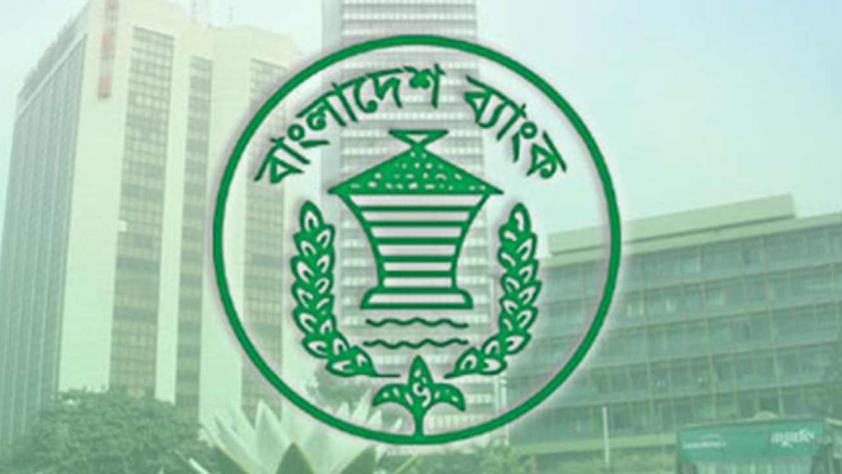Boosting investment is a big challenge for BB
Analysts share their expectations ahead of the monetary policy announcement, and advise BB to depreciate exchange rate

Finding ways to boost investment and growth is the next biggest challenge for the central bank's upcoming monetary policy, analysts said.
They also suggested that Bangladesh Bank depreciate the exchange rate to stimulate exports and liberalise current account, which would help reduce the growing menace of illegal capital flight.
Weak governance, nonperforming loans (NPL) and the spread between lending and deposit rates in the banking sector are some other major challenges that need to be taken care of.
“There must be attempts to revive investment and growth,” said M Syeduzzaman, former finance minister, on his expectations from the monetary policy statement to be announced by the end of this month.
He also pointed out weak governance and high NPL in the banking sector as the two other major challenges for the central bank.
Syeduzzaman spoke at a consultative meeting on the upcoming monetary policy at the Amari hotel in Dhaka on Monday.
Mustafizur Rahman, executive director of Centre for Policy Dialogue, said how the country can go to an accelerated growth path would be the biggest macroeconomic challenge for the central bank.
Given the present favourable economic conditions, BB can go for depreciating exchange rates to give benefits to exporters, Rahman said.
Private sector investment, which is the engine of growth, has remained stagnant at 22 percent of gross domestic product (GDP) for the last three years.
In fiscal 2014-15, private sector credit growth stood at 13.6 percent, down from 25 percent in 2011.
Though public sector investment has increased to 7 percent now from the previous 5 percent, it is not enough to boost growth to generate employment, according to the analysts.
On the other hand, the economy is on a good footing in terms of inflation (6.4 percent), exchange rate and falling commodity prices, including fuel in the international market.
The exchange rate has remained stagnant at Tk 77.65-77.8 for a US dollar for nearly two years.
Mahabub Hossain, a lecturer at Brac University, believes it is a good time to depreciate the local currency given the falling costs at import level.
The country can now afford the depreciation of exchange rate, but how it will be done is a challenge for BB, he added.
Shamsul Alam, a member of the Planning Commission and a senior secretary, questioned why banks cannot lend at single digit interest rates.
He advised the BB to encourage borrowing from foreign sources, as it would create pressure on local banks to cut interest rates.
The liberalisation of capital account will reduce capital flight, he added.
KAS Murshid, director general of Bangladesh Institute of Development Studies, said the government needs to increase investment to turn the country into a knowledge-based one. “We need to target higher value chain products as we are a land-constraint country,” he added.
Ahsan H Mansur, executive director of Policy Research Institute, said BB cannot ignore the high spread rate in the banking sector, adding that it should not be more than 3.5 percent.
Mansur also advised the central bank to gradually open the capital account and use a portion of the reserve money to build large-scale infrastructure projects.
For example, the government can take a project to make all major highways four-lanes.
He also suggested BB to enhance the export retention quota.
Two top commercial bankers defended the spread rate, which they said is decreasing.
The spread has reduced by 0.8 percentage points in 2014 and now the overall spread in the balance sheet is not more than 3 percent, said Ali Reza Iftekhar, managing director of Eastern Bank.
He said the gas and land crises hamper private investment more than the bank borrowing costs.
Abrar A Anwar, chief executive officer of Standard Chartered Bangladesh, hailed the BB for allowing low-cost foreign loans, as it helps investors undertake long-term projects.
He also advised the BB to allow foreign currency hedging. “If we don't hedge, we may not be able to lend for big projects. Hedging is critical if we want to go for higher growth.”
Biru Paksha Paul, chief economist of the central bank, welcomed the feedback of the renowned analysts on their expectations from the monetary policy stance.
Although around 80 percent of the economy is directly or indirectly linked to the MPS, there are hardly any discussions taking place on it, he said.
Monetary policy is instrumental in generating targeted growth and steering the overall economy, Paul added.
News:The Daily Star/15-Jul-2015
Other Posts
- Eastern Bank Limited (EBL) Photo: Eastern Bank Limited (EBL)
- BB's Cash Dept in Motijheel, Ctg to remain open Wednesday
- ACC to resume probe into non-funded part of Sonali Bank loan scam
- Purnendu made new GM of Janata Bank
- RAKUB makes profit after 10 years of consecutive loss
- Mobile banking to get a further boost




Comments